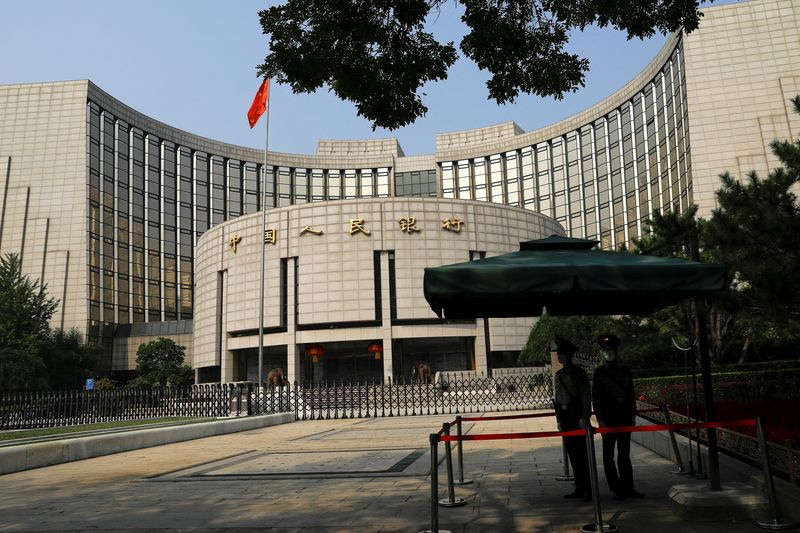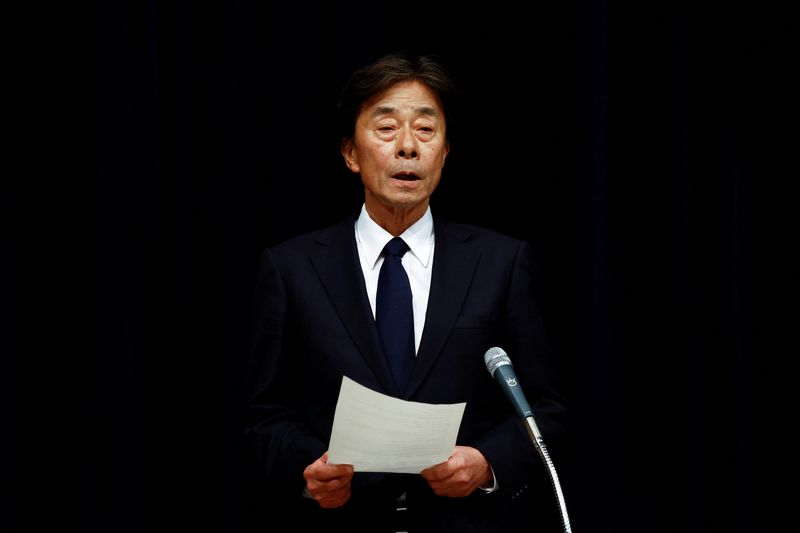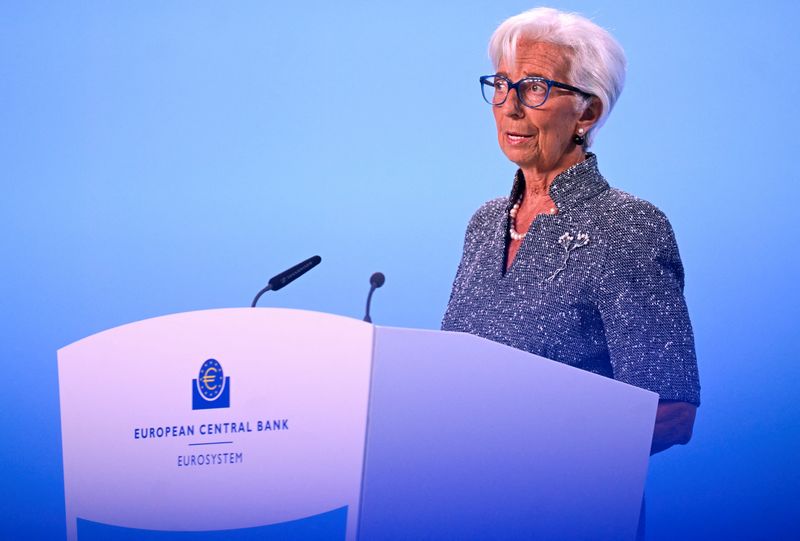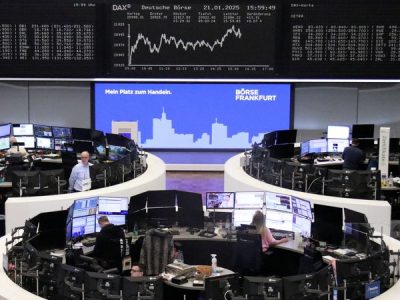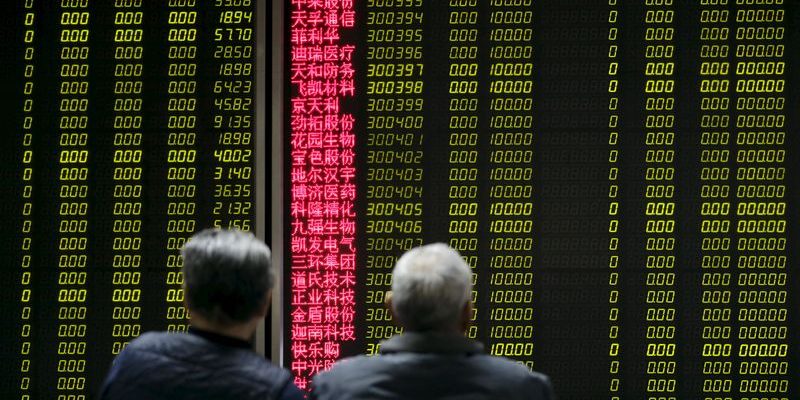
By Jamie McGeever
(Reuters) – A look at the day ahead in Asian markets.
Sugar high or shot in the arm?
That’s the question for Chinese stocks and investor sentiment which soared on Tuesday after Beijing, led by the central bank, unveiled a package of coordinated monetary and liquidity stimulus that packed a far more powerful punch than previous piecemeal efforts.
It was China’s biggest stimulus since the pandemic, and domestic and regional markets reacted accordingly – Shanghai’s composite index jumped 4.2% for its best day since July 2020, the MSCI Asia ex-Japan index hit its highest since April 2022, and the MSCI emerging market currency index leapt to a new high.
All well and good. But can this short-term relief morph into longer-term optimism that China’s authorities are back in the driving seat and steering the property sector, asset prices and the economy towards sustainable recovery?
“Bigger guns but still no bazooka,” is how Barclays economists neatly summed up authorities’ steps on Tuesday, adding that the central bank may fire more salvos in the coming months through interest rate and reserve requirement cuts.
Some analysts were quick to raise their 2024 GDP growth forecasts closer to the government’s 5% target, but most agree that large-scale fiscal stimulus is needed to really change the outlook beyond this year.
In the near term, however, the Chinese market rebound may have more legs. Not only had Chinese stocks slumped to their lowest in over a year, they have performed poorly in relative terms against regional and global rivals.
Analysts at Barclays are tactically bullish on Chinese stocks over Indian equities, while the divergence between the S&P 500 and Shanghai CSI 300 index in recent years has been frankly jaw-dropping.
The yuan climbed to a fresh 16-month high on Tuesday, and is now within touching distance of breaking the 7.00 per dollar barrier. For a currency as tightly controlled as the yuan, its 3.5% appreciation in just two months is remarkable.
Investor sentiment across Asia on Wednesday should also be boosted by the S&P 500 hitting another new high on Tuesday, albeit it only just, and a softer dollar and lower Treasury yields.
Japanese stock futures point to the benchmark Nikkei 225 index opening 0.7% higher on Wednesday. That said, global growth concerns – particularly over Germany – are percolating, which could legitimately counter any sense of bullishness across Asia.
The regional economic data calendar on Wednesday sees the release of Australian consumer inflation, which is expected to cool significantly to 2.7% in August from 3.5% in July, service sector producer price inflation from Japan and industrial production from Taiwan.
Among the regional policymakers scheduled to speak are South Korea’s finance minister Choi Sang-mok and Philippine central bank governor Eli Remolona.
Here are key developments that could provide more direction to Asian markets on Wednesday:
– Australia CPI inflation (August)
– Japan services PPI (August)
– Taiwan industrial production (August)


